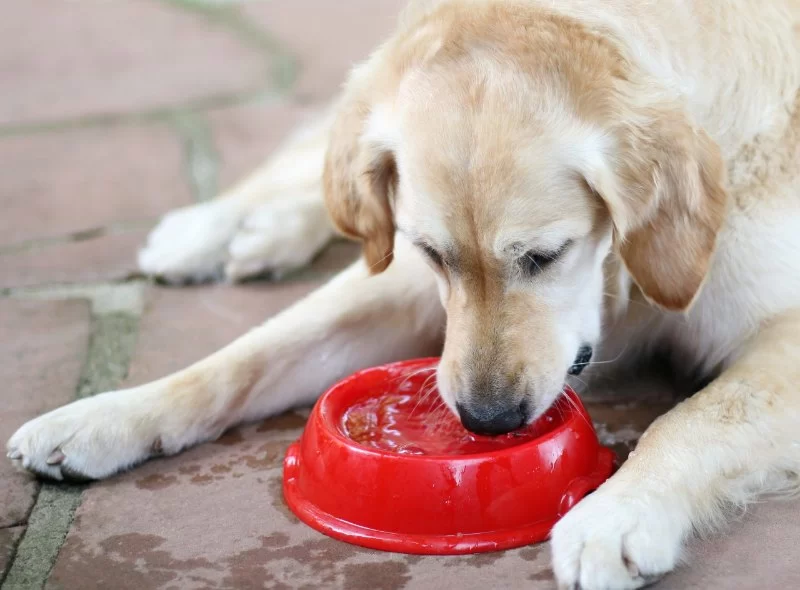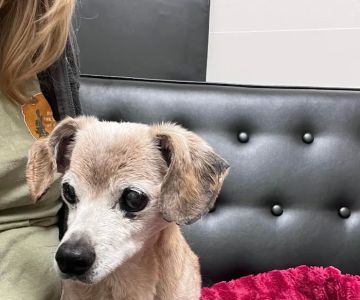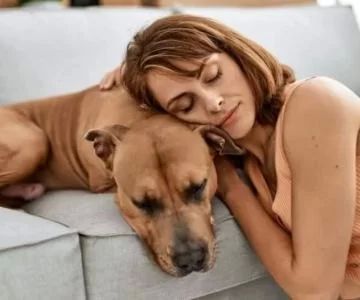- Dog-Not-Eating-but-Drinking-Water
- Common-Reasons-for-Appetite-Loss
- Real-Stories-and-Experiences
- When-to-Seek-Professional-Help
- Helping-Your-Dog-Recover
Dog Not Eating but Drinking Water
When a dog refuses to eat but continues to drink water, it often leaves owners anxious and uncertain. Dogs can skip meals occasionally, but a consistent refusal to eat while still showing thirst may signal an underlying problem. Understanding the potential reasons behind this behavior can help you decide whether it’s a minor issue or something requiring urgent veterinary care.
Common Reasons for Appetite Loss
There are several possible explanations when your dog is not eating but drinking water:
1. Minor Digestive Upset: Dogs sometimes experience stomach discomfort due to dietary changes, spoiled food, or overeating. In these cases, appetite may return within 24 hours while hydration remains intact.
2. Illness or Infection: Conditions such as gastrointestinal infections, kidney disease, or liver problems often present with reduced appetite. Drinking water may be the dog’s natural way of coping with discomfort.
3. Dental Problems: Tooth decay, gum disease, or oral injuries can make eating painful, but dogs will still try to drink.
4. Stress and Anxiety: Dogs are sensitive creatures, and moving homes, loud noises, or separation anxiety can affect their eating habits while leaving their thirst unchanged.
5. Medication Side Effects: Certain medications reduce appetite, but water consumption usually continues. Always check with your vet if your dog is on treatment and appetite drops suddenly.
Real Stories and Experiences
One dog owner in San Antonio shared how her Labrador suddenly refused food but eagerly drank water for two days. After visiting a vet, it turned out the dog had a piece of toy lodged in his mouth, making chewing painful. Another case involved a senior poodle who stopped eating but drank excessively; bloodwork revealed kidney disease, which was managed with dietary changes and medication. These stories highlight that while some cases may be simple, others are serious and need immediate veterinary attention.
When to Seek Professional Help
If your dog skips a meal but returns to normal quickly, it may not be a major concern. However, you should seek veterinary care if:
1. Appetite loss lasts more than 24–48 hours.
2. The dog shows additional symptoms like vomiting, lethargy, diarrhea, or weight loss.
3. Water consumption seems excessive compared to normal.
4. You suspect pain, injury, or poisoning.
Timely professional evaluation can make a significant difference. Clinics like Hidden Brook Veterinary are equipped to diagnose and treat these situations, giving you peace of mind and your dog the best chance at recovery.
Helping Your Dog Recover
While waiting for professional care, ensure your dog remains hydrated and comfortable. Offering bland foods such as plain boiled chicken or rice can sometimes encourage eating, though this should never replace a proper veterinary diagnosis. Reducing stress in the environment and observing closely for changes in behavior will also provide valuable information for your vet. Most importantly, trust your instincts—if your dog’s behavior feels unusual, it’s worth getting checked.
A dog not eating but drinking water can range from a minor issue to a critical health warning. By staying attentive and seeking timely veterinary advice, you can safeguard your pet’s well-being and ensure they get back to their playful, healthy selves.












